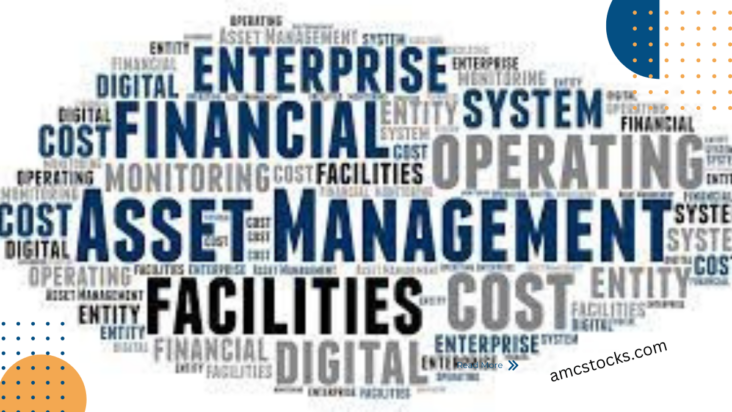In today’s rapidly evolving business landscape, effective asset management plays a crucial role in maximizing productivity and ensuring long-term success. For businesses operating in Chattanooga, Tennessee, a strategic approach to asset management is essential to leverage the city’s economic opportunities. In this post, we will explore the significance of asset management in Chattanooga and provide valuable insights to help you optimize your asset management practices.
Understanding the Importance of Asset Management in Chattanooga:
Chattanooga, known as the “Gig City,” boasts a thriving business environment with a diverse range of industries. From manufacturing and logistics to technology and healthcare, organizations in Chattanooga accumulate a significant number of assets that require efficient management. Effective asset management enables businesses to enhance operational performance, reduce costs, improve regulatory compliance, and foster growth opportunities.
Key Elements of Optimal Asset Management:
a) Asset Tracking and Inventory:
Implementing a robust asset tracking system allows you to monitor and trace assets throughout their lifecycle. Accurate inventory management helps prevent loss, theft, or misplacement of valuable assets, optimizing resource allocation.
b) Maintenance and Lifecycle Management:
Regular maintenance and proactive lifecycle management are crucial to extend asset lifespan and minimize downtime. Utilizing preventive maintenance strategies, conducting routine inspections, and leveraging data-driven insights enable you to identify maintenance needs and plan for replacements or upgrades.
c) Risk Management and Compliance:
Chattanooga businesses must adhere to industry regulations and standards to mitigate risks effectively. By incorporating risk assessment procedures and compliance management systems, you can ensure your asset management practices align with legal requirements and industry best practices.
d) Data-Driven Decision Making:
Leveraging asset management software and analytics tools allows you to harness the power of data for informed decision making. Analyzing asset performance, utilization, and cost data enables you to optimize asset allocation, identify inefficiencies, and streamline operations.
Implementing Best Practices for Asset Management in Chattanooga:
a) Adopting Cloud-Based Solutions:
Cloud-based asset management platforms offer scalability, accessibility, and real-time updates, enabling businesses to manage assets remotely and collaborate seamlessly across teams. This approach eliminates paperwork, reduces administrative burden, and enhances efficiency.
Compliance and Risk Management: Compliance with industry regulations is crucial for businesses operating in Chattanooga. Develop robust compliance management systems that align with legal requirements and industry best practices. Implement risk assessment procedures to identify and mitigate potential risks, safeguarding your assets and maintaining a secure business environment.
b) Utilizing IoT and RFID Technology:
Internet of Things (IoT) and Radio-Frequency Identification (RFID) technologies offer advanced asset tracking capabilities. These technologies provide real-time location monitoring, asset condition monitoring, and automated data capture, allowing for streamlined asset management processes.
Embrace Technology Solutions: Adopt cloud-based asset management platforms that offer scalability, accessibility, and real-time updates. Cloud solutions streamline asset management processes, enable remote access, and facilitate collaboration across teams, increasing efficiency and reducing administrative burdens.
c) Integrating Asset Management with Enterprise Resource Planning (ERP) Systems:
Integrating asset management software with your ERP system centralizes data, facilitating streamlined workflows and eliminating data silos. This integration enhances visibility, simplifies reporting, and optimizes decision making.
d) Emphasizing Employee Training and Engagement:
Engage your employees in asset management processes by providing comprehensive training programs. When employees understand the importance of asset management and their role in the process, they become valuable contributors to optimizing asset utilization and maintenance.
f) Invest in Employee Training and Engagement:
Educate and engage your employees in asset management processes through training programs and clear communication. Empowered employees understand the importance of asset management, actively participate in asset tracking, maintenance, and compliance, driving overall efficiency and effectiveness.
Optimizing asset management practices is vital for businesses in Chattanooga, Tennessee, to stay ahead in a competitive market. By implementing comprehensive asset tracking, proactive maintenance, compliance management, and leveraging data-driven insights, you can streamline your asset management processes, maximize productivity, and achieve sustainable growth. Embrace technology solutions, integrate systems, and invest in employee training to ensure your asset management strategies align with the unique demands of Chattanooga’s business landscape.
Conclusion:
Efficient asset management is the cornerstone of success for businesses operating in Chattanooga, Tennessee. By implementing best practices, leveraging technology solutions, and adopting a data-driven approach, you can streamline your asset management processes, maximize productivity, and gain a competitive edge. Embrace the opportunities offered by the “Gig City” and unlock the full potential of your assets for sustainable growth and profitability.
